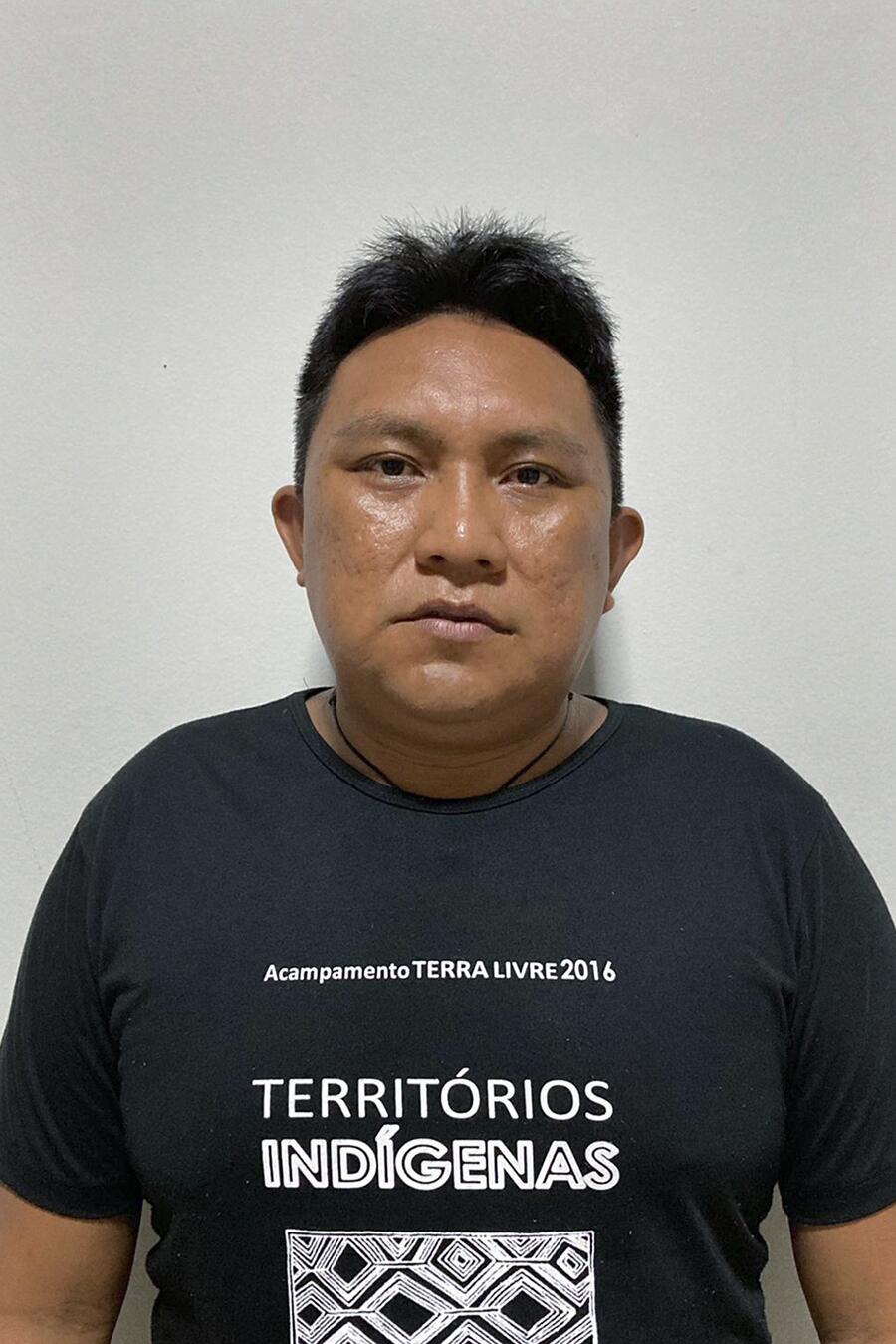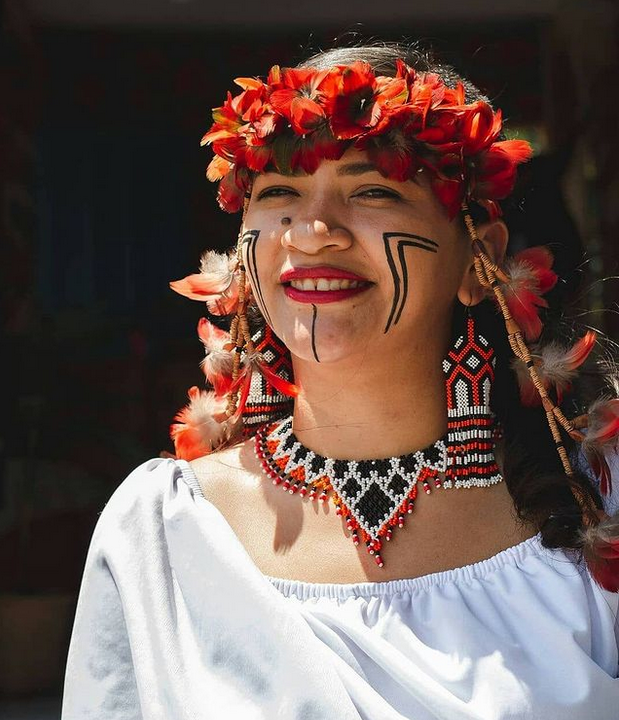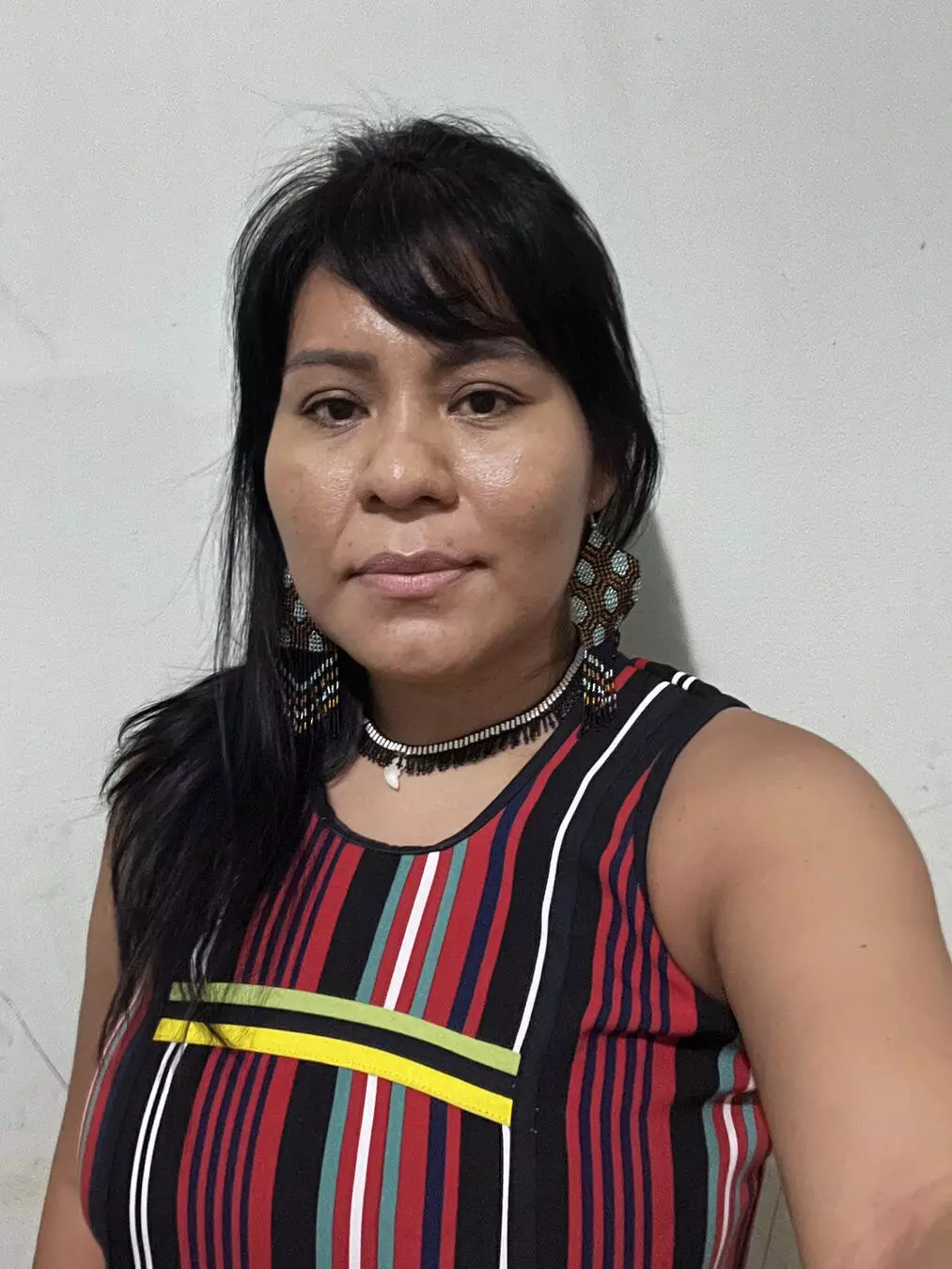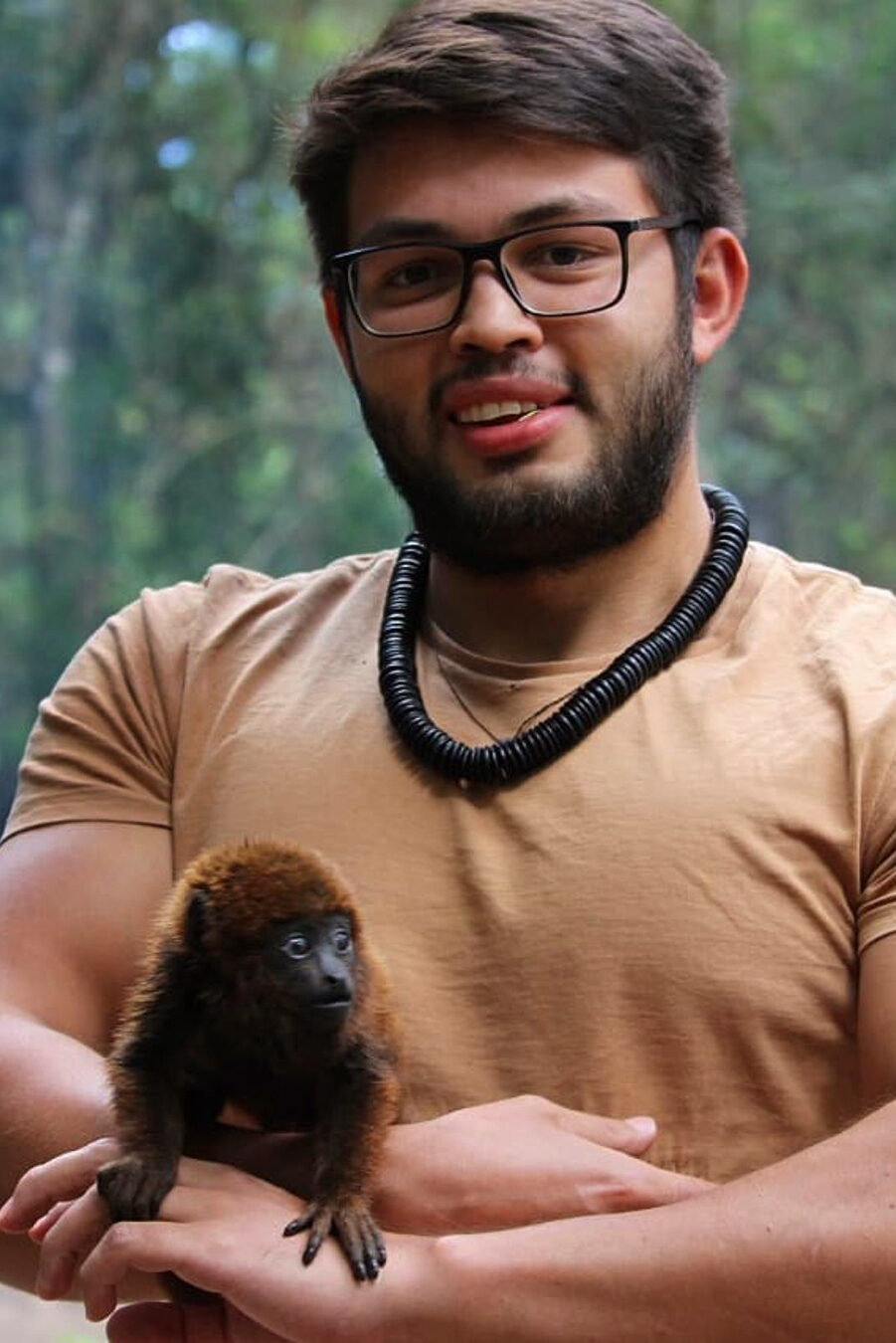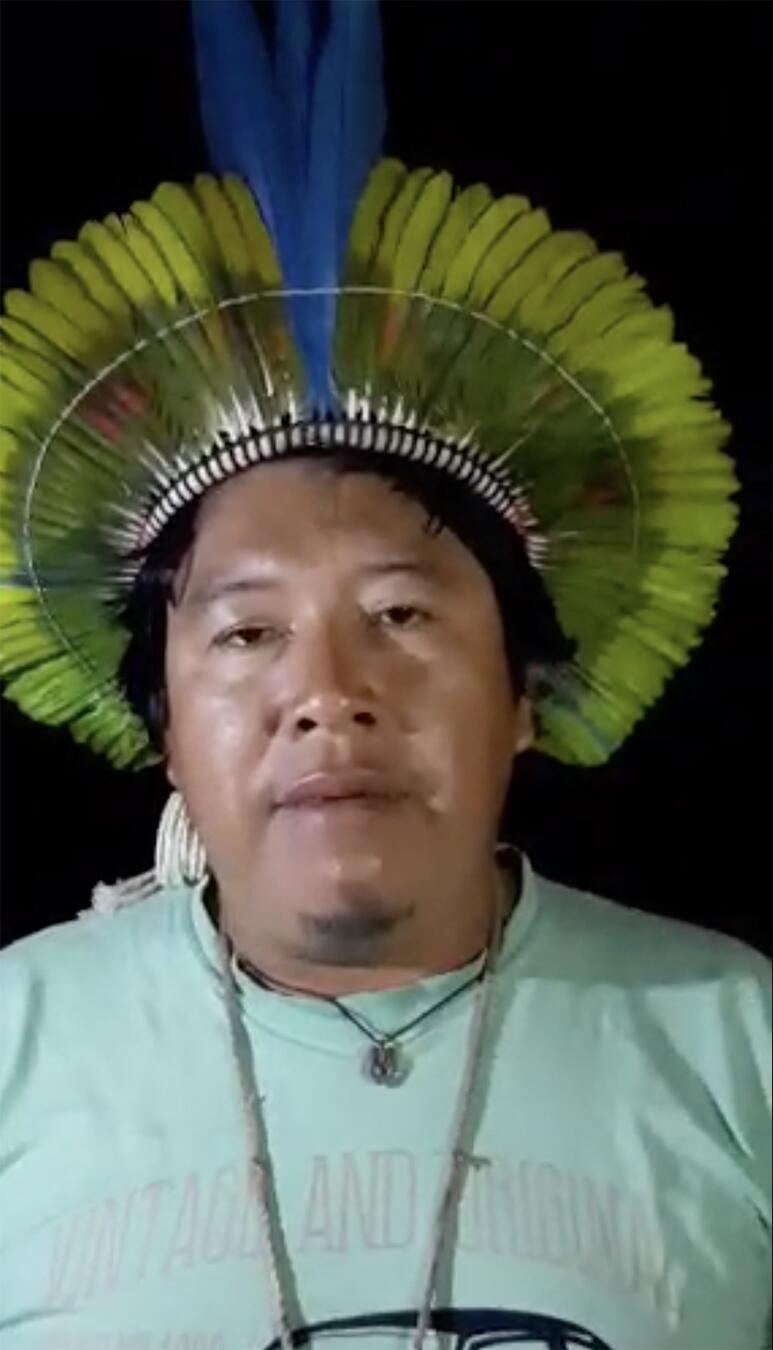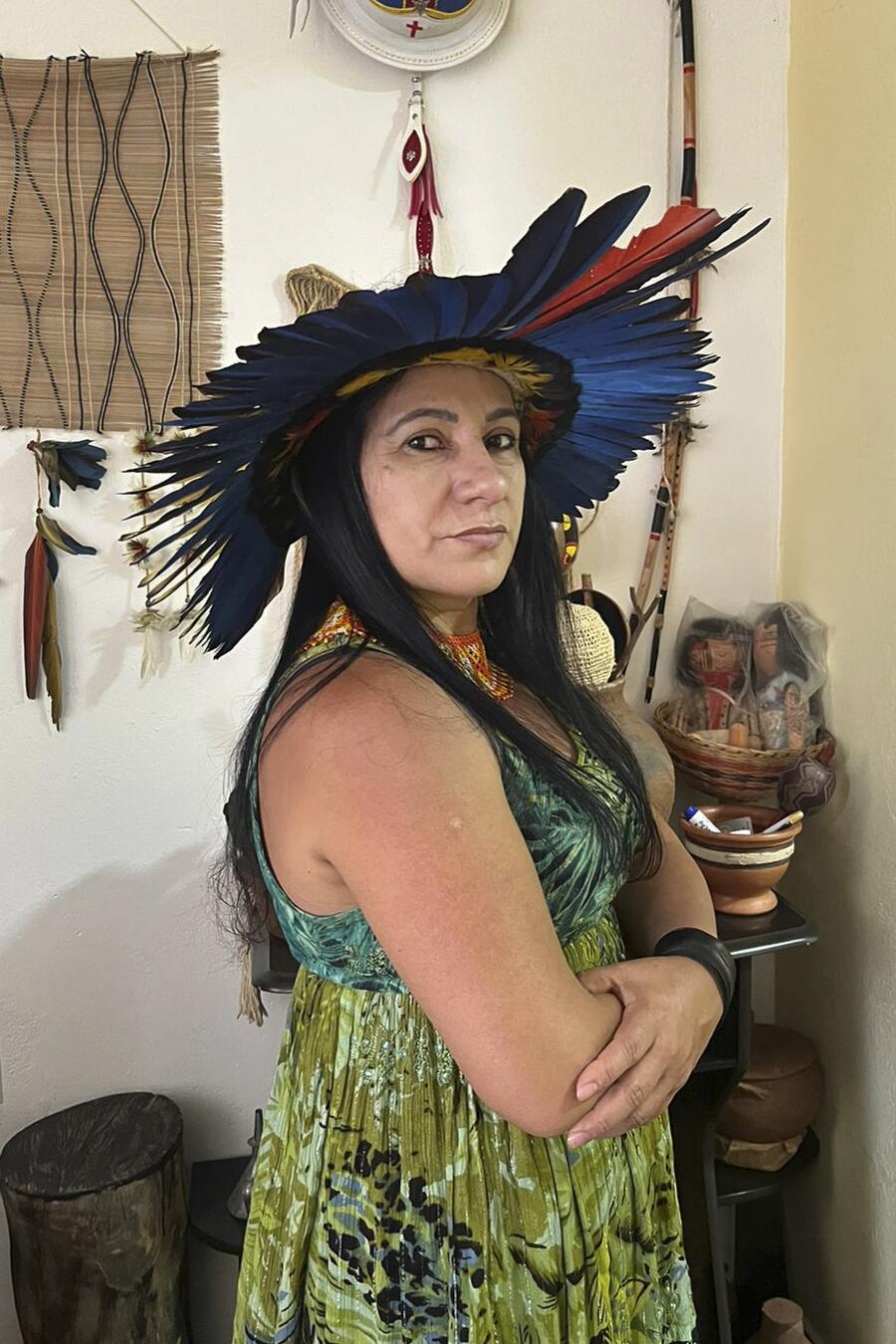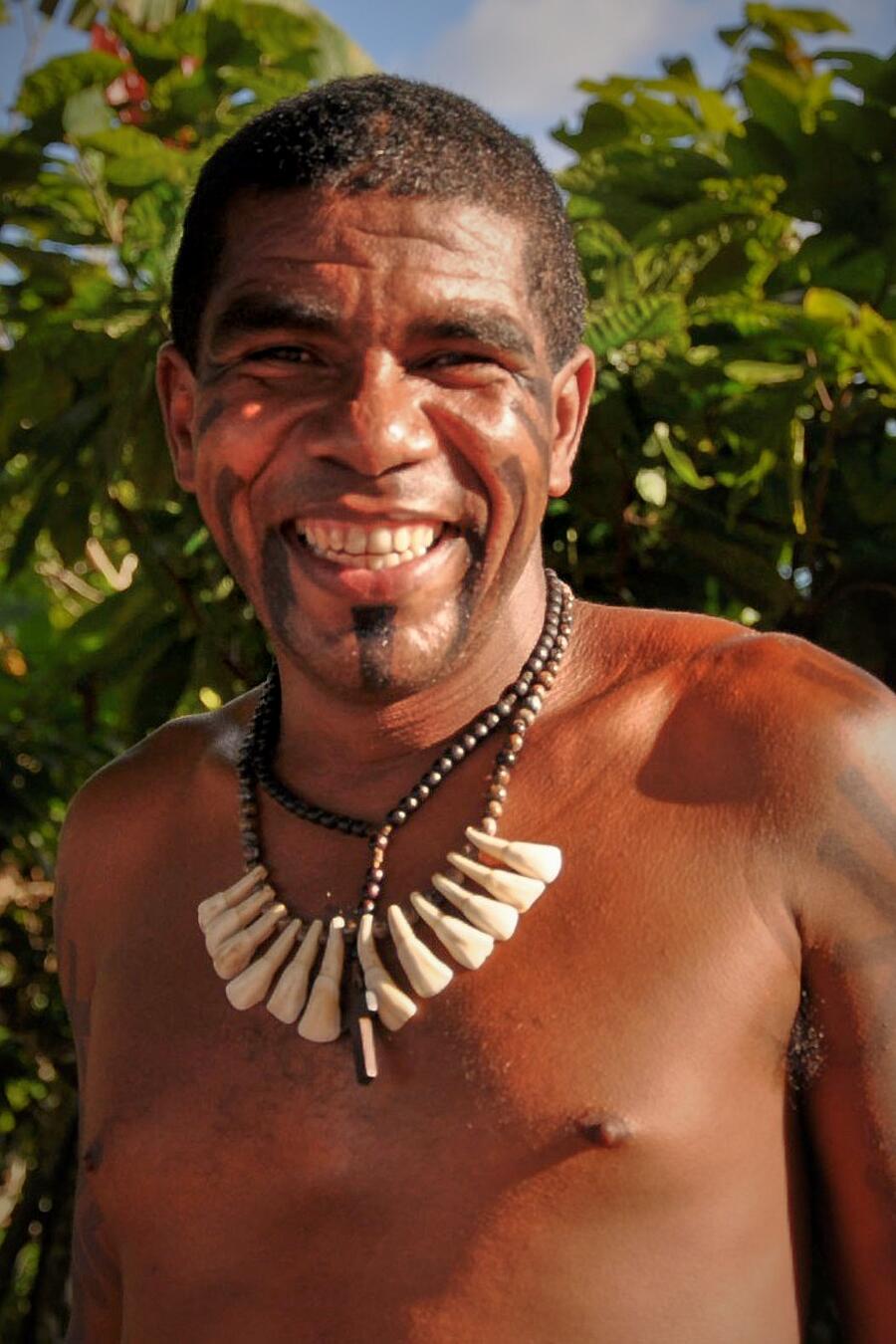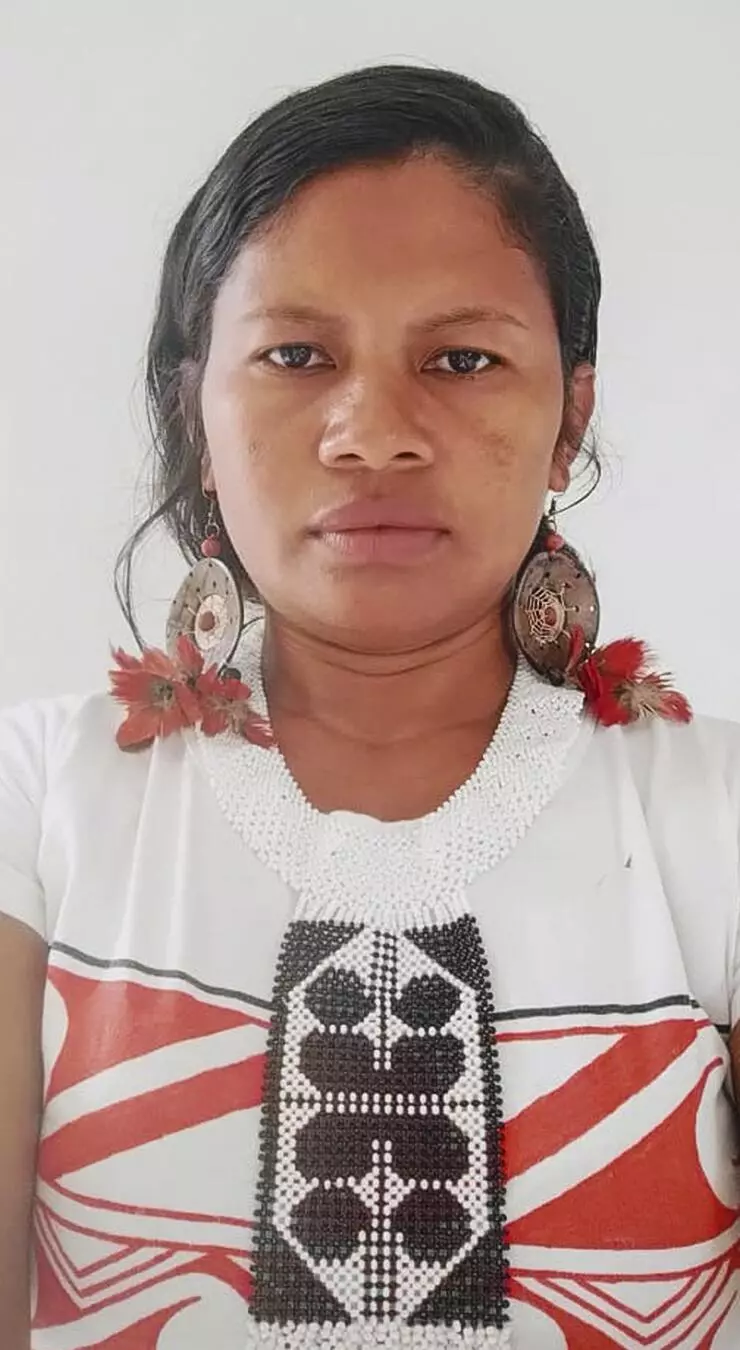The peoples of Brazil’s natural environment have no time to waste, and demands that cannot wait. After four years of battling for survival under the attacks of Jair Bolsonaro and his supporters, the victory of Luiz Inácio Lula da Silva, better known as Lula, in Sunday’s presidential election run-off represents a chance to breathe for such Brazilians. Following a pandemic that, through Bolsonaro’s deliberate negligence, killed elders who were both symbols of resistance and guardians of language and culture, the country’s indigenous peoples and traditional populations hope they will finally have a chance to grieve in peace. Most have supported Lula since the first round, while many had to overcome obstacles, such as roadblocks and the suspension of public transport, just to get to the polling stations. But still they voted. Some bear deep scars from the damage done by previous Workers’ Party governments, such as the socio-environmental disasters of the enormous hydroelectric dams constructed in the Amazon, especially Belo Monte, on the Xingu River, and the Jirau and Santo Antônio dams, on the Madeira River. Despite this, they have again placed their trust in Lula’s campaign promises. They know the fight will go on, but hope that the president-elect will at least be able to stop the massacre of nature and its people, restart the demarcation of indigenous territories, recognize and grant ownership of quilombola lands, expand conservation areas, and protect all the enclaves of nature they defended with their own bodies under the Bolsonaro government, often at the cost of lives.
In his victory speech on Sunday night Lula said: “Brazil is ready to resume its role as a leader in the fight against the climate crisis, protecting all our biomes, especially the Amazon rainforest. […] Let’s fight for zero deforestation in the Amazon. Brazil and the planet need a living Amazon. A standing tree is worth more than the tons of wood illegally harvested by those who think only of easy profit, at the expense of the deterioration of life on Earth. A river of clear water is worth much more than all the gold extracted at the cost of mercury that kills fauna and puts human life at risk. When an indigenous child is murdered by the greed of the predators of the environment, a part of humanity dies with them. We will therefore resume monitoring and surveillance of the Amazon and combat any and all illegal activity – whether prospecting, mining, logging or illegal occupation of land for agriculture. […] We have a commitment to indigenous peoples, the other forest peoples and to biodiversity. We want environmental pacification.”
None of these promises will be fulfilled without the participation of Brazil’s original peoples and traditional populations, such as the residents of riverside communities and quilombos (settlements originally founded by escaped slaves). No compromise will be reached without involving those who, for millennia in the case of the indigenous people, or for centuries in the case of the quilombo or riverine communities, have protected the forest and other natural enclaves. Nor will there be peace or justice without agrarian reform for agroecological workers, who today find themselves in the sights of land grabbers and loggers who raze public lands for profit. In order for the president-elect’s speech to reach the forest floor and other biomes, the people of Brazil’s natural environment need to be present in the Planalto and in all spaces of power – and with power of their own.
As our contribution to the urgent debate taking place during this period of transition, from today SUMAÚMA takes the voices of those who fight to keep nature alive to Lula and Brazil – starting with the leaders of the indigenous peoples of the Amazon and other biomes. Over the next few days, our trilingual journalism platform will also bring together the demands of the leaders of the riverside settlements, quilombos and agroecological worker communities of the forest, as well as the views of the urban social movements that support them. It is up to Lula, as well as those in the broad group of alliances that carried him to power, to listen. For it was these people who put, and continue to put, their bodies on the line to protect the Amazon and other natural enclaves from the most brutal attacks since the military dictatorship that governed Brazil between 1964 and 1985. They have a voice, but what Brazil has been missing is the ears to listen. It is time for this to change.
Dário Kopenawa
We, the Yanomami people, need President Lula to act as early as January [when the new president is inaugurated]. We need immediate measures to remove the prospectors from the Yanomami Indigenous Land and other indigenous territories, such as those of the Kayapo and Munduruku, which, along with the Yanomami, are the most invaded in Brazil. We need urgent action in these three indigenous territories to eliminate illegal mining.
We’re asking for this territorial protection, and for Funai checkpoints to prevent the entry of prospectors into Yanomami land, as well as monitoring and territorial surveillance. We need the state and federal governments to do their duty in monitoring indigenous territories and strengthening indigenous policies, as well as Funai, so they can continue to carry out actions to prevent illegal miners from invading. The Yanomami people need to be protected from massacres and bloodshed, so there is no more pollution of our rivers, and so Yanomami health can improve.
Lula has to create a strategy with concrete actions to remove the prospectors. An emergency plan has already been drawn up. The Supreme Court has asked the government to comply, but Bolsonaro’s government hasn’t done anything. Lula has to use this plan (Action for Noncompliance with Basic Principles No. 709), to carry out the actions the Yanomami have already requested, and tell us that he needs 30, or 60 days, and then serious measures will be taken against the intrusion.
Jaciara Borari
The first action the Lula government needs to take is simple: fulfill the promises it has already made to indigenous leaders, especially those at the Free Land Camp [a gathering of Brazil’s indigenous peoples]. One of those promises includes the creation of the Ministry of Indigenous Peoples – but who is going to run this ministry? I hope they are indigenous people working with us, not against us, like at Funai. Bolsonaro was true to his word and didn’t demarcate any land; now we want Lula to keep his promise so that demarcation can start again, and we can walk freely without being threatened and have our freedom back.
I believe Lula will be better than the last time he governed Brazil, because back then he approved projects that weren’t good for us, such as the Belo Monte dam, and a lot of indigenous lands that could have been demarcated were not. We’ll start making our demands from January 1, because we fought hard to help put him in power and now we want our rights guaranteed.
Lula has already been invited to COP27, and the indigenous youth will be there to meet him and present our proposals in relation to climate policy from 2023 onwards. Lula has already signaled that he’s prioritizing this agenda by correcting Globo [Brazil’s biggest broadcaster] in the last televised debate, saying we no longer talk about “the environment”, but about “climate”. It was clear he knows what needs to be done. And the demarcation of land is the best way to preserve the forest! Helder [Barbalho, Governor of Pará state] and Lula have also said we have enough deforested areas to double production without having to cut down even one more tree. We don’t need to deforest even a meter of land for new crops, cattle raising or anything like that. We need to increase productivity, not expand into new land.
Watatakalu Yawalapiti
What’s the first thing the Lula government should do in relation to indigenous peoples? Listen to the indigenous among his supporters, and start a conversation with indigenous peoples, to listen to what we want. Organize Funai and (Brazil’s indigenous health service) Sesai, and provide dedicated education, and carry out the demarcation of lands we need. Most of all, he needs to repair what’s been done in the past, because Brazil owes a historic debt to our indigenous people.
Watatakalu Yawalapiti, Parque Indígena do Xingu Indigenous Lands, Mato Grosso, Cerrado/Amazon
Maial Paiakan Kaiapó
When I think of the first action the Lula government should take to support indigenous peoples, several fundamental things go through my head. But the one that stands out, around the state of Pará, in the Amazon, has to be the removal of invaders – prospectors and loggers – from our lands. For the last four years, our demands have centered on the conflicts caused by the invasions. There are reports of Parakanã indigenous people who didn’t vote for fear of leaving their territory, because there’s so much conflict here. Funai needs to be strengthened, so it can act effectively.
In São Félix do Xingu, there’s a conflict with invaders of the Apyterewa Indigenous Land. The decision has already been taken to remove them there, as well as from the Arara lands. We urgently need a Ministry of Indigenous Peoples. But the most urgent need, which is something we’ve demanded for a long time, is the removal of invading fishermen, like in the territory where [the journalist] Dom [Phillips] and [the indigenous expert] Bruno Pereira were murdered. Removing them makes us feel safe. There were legal orders and documents, and Bolsonaro did nothing. The opposite, in fact.
Marco Kaingang
Hello, my name is Marco Kaingang, I am an indigenous Brazilian of the Kaingang people. I live in the state of Rio Grande do Sul. After the electoral process is over, we indigenous peoples anticipate great challenges ahead for this new government over the next four years. I say this because the majority of Congress leans to the right and we will certainly have difficulty progressing an agenda that seeks to meet the demands of indigenous peoples. Passing bills through Congress will be difficult, even for the federal government, under this new administration. Many obstacles will have to be overcome in the next four years to ensure the rights of the indigenous peoples of Brazil.
Our message is that the commitments made during the electoral campaign should be honored, namely increased participation of indigenous peoples in public administration at a federal level. More indigenous people in government, not only in the Ministry of Indigenous Peoples, but in every setting which deals with public policies aimed at our people.
This would be a great achievement for our country, as we have indigenous people who are qualified and ready to occupy these spaces in the various ministries that will now form the new federal administration. We hope that the new president-elect will be able to establish this dialogue with the relevant powers in order to effectively guarantee indigenous rights, as he has committed to doing throughout his campaign. Our presence in the government, in the various ministries, would represent a great advance in public policies aimed at us.
We mobilized, and dedicated ourselves to this process, and we also want to fight to make sure our rights actually exist in Brazil. We have a great opportunity, now, to make advances in implementing public policies that have failed to materialize for many years, since the redemocratization of Brazil [at the end of the military dictatorship that governed the country between 1964 and 1985].
We’re waiting expectantly, hoping for greater indigenous participation. The scenario for the next four years is optimistic and positive.
Djuena Tikuna
My name is Djuena. I’m an indigenous Brazilian of the Ticuna people, from the Alto Solimões region. I’m a singer and a journalist. I hope that the Lula government can look into the forest with more love and affection. That we value each being, each life that exists here. That our elders, the guardians of our culture, are valued, and that our children and grandchildren are protected so they will soon live in a free, unthreatened land. That, together, we will be able to find peace in our territories, which today are invaded by miners, drug traffickers, loggers and agribusiness. Together we will manage to reforest the heart of the world.
Djuena Tikuna, Umariaçu II village, Amazonas, Amazon. Singer, songwriter, journalist and environmental activist
Yabaiwa Yudjá
Lula, I’m very happy you were elected president of Brazil! We’re here, right now, celebrating our victory together with young people and children so that, starting next year, we can get to work. When you take over Brazil, on January 1, remember to fulfill all the promises made during the campaign. That’s what we’re hoping for.
We’ve been through extremely difficult situations in recent years, so let’s remember everything that was promised to us, because we’re hoping for good things from this new government of yours, Lula. We want respect, we want dignity, we want the right to land, we want the right to our culture. We want rights for everyone!
What I want to say to you is that we need to change Brazil. We need to live in peace, love and harmony. Enough of the suffering, enough of the threats, the massacres. We want to change Brazil today. Brazil will change! That’s what we hope for. And we deserve respect.
Chirley Pankará
The start [of Lula’s government] is going to be hard, because everything that has been misaligned needs to be put right. There needs to be a realignment across the board. Our house has to be put in order to save both lives and the planet. First of all, a Ministry of Indigenous Peoples needs to be created, something that president-elect Lula stressed at a number of campaign events. And the choice (of minister) should be made by the indigenous peoples themselves. Lula needs to choose good Environment, Education, and Culture ministers, and make sure all these areas focus on the preservation of biomes.
But a Minister of Indigenous Peoples, in a Brazil in such chaos, is going to face a lot of challenges. We need to have indigenous people on the inside. Just proposing this ministry is a significant step towards the autonomy of indigenous peoples, who should also play a leading role in (Brazil’s indigenous protection agency) Funai. We have so many good people, in lots of areas, who we can call upon. We have our own anthropologists, who can run departments in the ministry itself, to meet our specific needs. Who else understands the needs of an indigenous territory? The indigenous peoples, who need to form the base of the ministry to allow the demarcation of lands.
This is new, and what the new looks like has yet to be defined. We won. And now we have reasons for hope.
Ednei Arapiun
In my region, the two most important things, which go hand in hand, and which I hope will change now with the Lula government, are firstly the issue of racism and prejudice, of not being recognized as indigenous here in the region, and secondly the demarcation of our lands. With the reduction of racism and institutionalized prejudice against indigenous peoples, the violence, including physical attacks, that we have suffered will also be reduced. To a great extent, the freedom people had to treat us this way came from the “permission” that the president gave for this type of behavior, because he himself was prejudiced, and called us lazy people who only hold back development.
I believe that the creation of a Ministry of Indigenous Peoples will result in discussions across other ministries, strengthening the role of Funai within them. The current Funai and Sesai employees are allies of the current president, and even have the same prejudices. Government bodies wanted to take away our rights, instead of guaranteeing them. I hope this changes now. The Ministry of Indigenous Peoples can establish this dialogue, so that we can always talk face to face, meaning less sacrifice on our part. In the last year alone, I spent almost a month camping, and went to Brasília three times by bus to make complaints.
Now, what I’m really waiting for is for Bill 490 (which states that indigenous peoples only have the right to legal recognition of lands they resided on when the Brazilian Constitution was enacted in 1988) and Bill 191 (on mining in indigenous lands) to be stopped. The Time Frame (as Bill 490 is known) ends all our dreams in the Baixo Tapajós region. We need to ratify the creation of the Maró Indigenous Land to stop logging, mining and other invaders once and for all.
Many of those who previously defended their lands and fought against mining in the Alto Tapajós region, for example, have been completely co-opted. The indigenous themselves were talked round, with the incentives that Bolsonaro provided for this type of activity. There was a lot of talk, too, that wood would bring benefits to our region, but we know that people’s lives don’t end after 30 years, but the life of the forest does. So those who are harvesting wood now might not suffer, but those born today won’t survive long. We are now going to approve, in our assembly, seven protocols of consultation for our region. The Lula government must respect these, and guarantee investments and resources for the maintenance of biodiversity, and to keep the forest upright!
Ednei Arapiun, Maró Indigenous Lands, Baixo Tapajós, Pará, Amazon. Vice-coordinator, Tapajós Arapiuns Indigenous Council
Chief Babau
First, I want to congratulate Lula on his victory, because we know what was done to him. Nobody should do to a leader what they did to Lula. That is why we, the Tupinambá, have always stood together with him, as we have been wronged throughout our lives, and persecuted by the system, which always defrauds the rights of indigenous peoples.
If Lula does what he said he would do during the campaign, it will be important for us. However, we need to make progress on other issues. The rights of indigenous peoples cannot be violated by evangelical churches or any other religious denomination, which are killing the culture of peoples who are unable to defend themselves. It is the plundering of indigenous areas, which Lula said he would fight against.
There are many areas where we need to see advances. A number of indigenous people were elected. We have the strength to be close to Lula, to discuss our issues in depth. We can’t miss this opportunity to approve the Statute of Indigenous Peoples, with all the rules clearly established, to prevent Congress from constantly wanting to change the laws. What must be done is the regulation of the Constitution through the statute.
The first thing the Lula government will have to do in the budget is to restore resources for the indigenous people. We had R$1.6 billion (around U$302 million) to spend on health [the annual budget for 2022], but Bolsonaro blocked a large part of these resources. If this R$1.6 billion wasn’t enough to guarantee decent indigenous health, imagine cutting it further! I don’t know how Lula is going to replace that money, but he has to.
It is also important to restore the resources of Funai, and immediately hire people to work in the agency, because it was completely dismantled, including the sector responsible for the study of land ownership and the demarcation of indigenous lands. Everything was scrapped or destroyed. Lula said that he wanted an indigenous person to be the president of Funai. I don’t know if he’s really going to do that soon. But I see restoring the functioning of the indigenist agency as an urgent need. This is the first priority.
My community, the Tupinambá da Serra do Padeiro village, and I, expect the Lula government to demarcate our region, in the south of Bahia. The Tupinambá de Olivença and the Barra Velha do Monte Pascoal indigenous lands in the extreme south of Bahia, which belong to the Pataxó, have had their reports [identifying and delimiting territory and attesting to a history of indigenous occupation] published since 2009 and 2008, respectively, and all the lawsuits against them were unsuccessful. However, Sérgio Moro [Brazil’s Minister of Justice from 2019 to 2020], breaking every rule, sent 17 demarcation processes back to Funai, including those two indigenous lands.
What we hope for from the Lula government is that it immediately looks at these processes and fulfills its duty: to urgently sign the ordinance and ratify these indigenous lands. That’s all that’s missing – all the legal issues have been overcome, the improvements to the land have all been evaluated. What we’re waiting for is the demarcation of the Tupinambá de Olivença and Barra Velha do Monte Pascoal indigenous lands.
Txai Paiter Suruí, Neidinha Suruí, Walelasoeikingh Paiter Suruí, Porto Velho, Rondônia, Amazon
Txai Paiter Suruí, Neidinha Suruí, Walelasoeikingh Paiter Suruí
“For me, President Lula’s first act has to be the demarcation of all indigenous territories and the removal of all invaders and illegal mining from within our lands,” says Txai Suruí.
“Lula has to invite indigenous leaders to talk about the demarcation and protection of our territories. And especially about how to strengthen control and inspection agencies,” states Neidinha Suruí.
“Lula’s first act has to be to lift Bolsonaro’s 100 year-secrecy decrees [a reference to the secrecy orders Bolsonaro has placed on certain personal documents] to ensure transparency,” adds Walelasoeikingh Paiter Suruí.
Bitate Uru-Eu-Wau-Wau*
I think that President Lula’s first act should be to talk to indigenous peoples about isolated tribes, and about the restructuring of Funai.
*Uru-Eu-Wau-Wau Indigenous Lands, Rondônia, Amazon
Bel Juruna
I hope that Lula fulfills his promise to protect the Amazon. First of all by reinforcing inspection and control measures, and combating all the illegal actions going on here in the forest. Because we, the indigenous peoples, need our forest upright, and our rivers preserved, to give us quality of life. Every time an indigenous person dies as a result of the illegal actions of these environmental predators, a little bit of the Amazon dies along with them. I hope the Lula government fulfills all the promises it has made, especially by caring for the Amazon, and fighting to protect it, because the entire population of the world needs preserved rivers and standing forests. Because we – not just indigenous peoples, but all of humanity – need to breathe and enjoy quality of life.
Interviews by Letícia Leite, Raquel Rosenberg, Elisa Estronioli, Carla Jimenéz, Yago Kaingang, Daniela Alarcon and Talita Bedinelli
Translated by James Young




